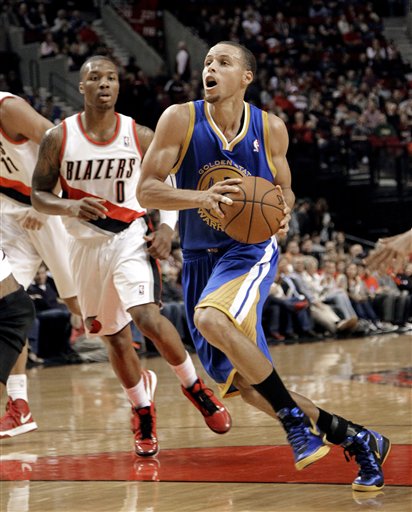The Warriors overcame poor shooting and an eight-point halftime deficit to even the series at two games apiece. The Warriors held the Spurs to 35.5 percent shooting, only slightly worse than their 38.0 percent performance, and were especially effective defensively to end the game. After injuring his ankle at the end of Game 3, Stephen Curry appeared slowed, and spent the majority of the game off the ball, often forgotten as the Warriors struggled offensively.
Why the Warriors Won:
In classic Warriors fashion, the Warriors controlled the boards and dominated defensively. Well, maybe it was not the typical Golden State victory, and maybe the Warriors’ defensive success was as much a result of poor shooting by San Antonio as it was due to the Warriors’ actions, but the Warriors grabbed several key offensive rebounds, made a few vital stops, and received just enough assistance from San Antonio to eek out a victory.
Key Stretch:
With 4:18 left in the fourth quarter, Kawhi Leonard pulled down an easy offensive and scored on an uncontested layup, putting the Spurs up 80 to 72. Over the next three possessions, Jarrett Jack made three straight midrange jumpers, while the Spurs scored only once, decreasing the lead to four. More importantly, the Jack had returned some semblance of offensive production to the Warriors’ offense while the Spurs’ struggles continued.
MVP:
Today’s award goes to Jarrett Jack, almost by default. Jack scored 24 points on 9-of-16 shooting, and though they eventually won, Jack led the Warriors through many offensive possessions that were nothing more than offensive. Jack did not play well defensively, though he was not abused to the same degree as prior games, but someone has to take credit for the Warriors’ late game comeback. Jack keyed the Warriors offense down the stretch, avoided any crippling turnovers, and was efficient enough for the Warriors to win.
Notable Performances:
Stephen Curry, despite appearing immobile for many stretches, scored 22 points on 7-of-15 shooting. Curry was a team high plus-23 in his 39 minutes, but was not able to be the offensive focus on whom the Warriors have come to rely. Harrison Barnes attempted a career-high 26 field goals, but only made nine. Barnes repeatedly attacked out of the mid-post and off wing isolations, often against the smaller Tony Parker and Gary Neal.
On a night when nearly every player struggled offensively, Manu Ginobli may have been the most dynamic. Ginobli made 5-of-10 attempts from behind the arc, and converted 8-of-18 shots to score 21 points. Ginobli missed several key attempts towards the end of the game, and though he created much of the Spurs’ offense, he often damaged it as well.







